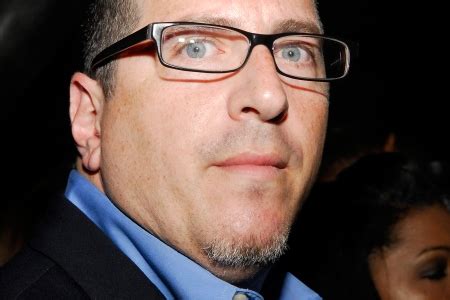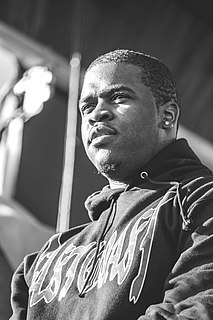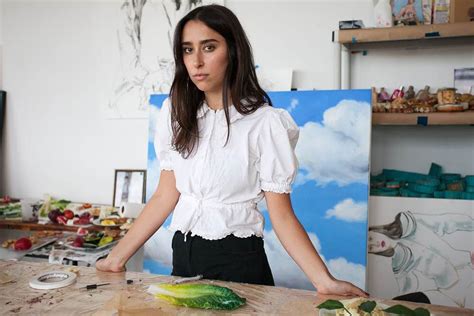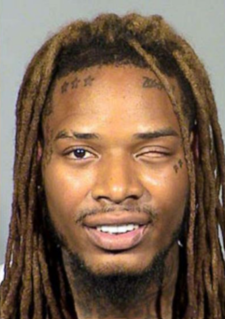A Quote by Hiroshi Fujiwara
I'd been asked by Takashi Murakami to collaborate on something, which was an honor for me. I was really pleased. And then he had me as a guest speaker on his radio show, and we were talking about art. I don't think he knew I was interested in the topic - he was really surprised to find out that I own some original Andy Warhol and Gerhard Richter and Jean-Michel Basquiat works. So, in some ways, I think he simply wanted to see what I have.
Related Quotes
I've got a nice collection of paintings - a Basquiat, a black-and-white Warhol that's like a Rorschach test, and I commissioned Takashi Murakami to do a ten-foot joint for me. It's almost like the explosion in Hiroshima with his famous skeleton head. There's a wall above my fireplace reserved for it.
I have always been involved with radio, whether it was as an artist talking to radio about my own songs, or as a promotion man at Def Jam to working records through my company. In 2000 I was asked to host a show in Norfolk VA and through that show I was then asked to host the morning show in Detroit. The concept of the show was around Hip Hop. We were active in the community and we wanted to do a local show that had a hip hop feel around it.
It's funny, because Arrested Development is tied to Andy Richter in a few different ways. For me personally, after I did Andy Richter, one of the next things I did was a show called Quintuplets for a season for Fox, and this was while Arrested Development was on. I used to go over and hang out on their set.
It's funny, because 'Arrested Development' is tied to Andy Richter in a few different ways. For me personally, after I did Andy Richter, one of the next things I did was a show called 'Quintuplets' for a season for Fox, and this was while 'Arrested Development' was on. I used to go over and hang out on their set.
I took photos from 1976 to when I left in 1993, primarily for Interview and a column I had called "Bob Colacello's Out" which Andy had conceived of. I've never taken a picture since, not even with my phone! It just felt too Andy Warhol to keep going around town taking photographs. And I never really thought of doing anything with them after I left the magazine until this great Art Director Sam Shahid about for or five years ago asked where all of the old photos were.
I was 14, when I wanted to be an actor. My parents were basically like, "This is a very hard life, and you have to be really serious about it, and show us that you're serious about it. You can't drop out of school." They strongly encouraged me not to act professionally until I finished college, which I didn't. And I think they should have been horrified! It's a really hard life. I'd be really scared if I had a child who wanted to be an actor.
I had just been doing graffiti around New York and this real estate investor guy had walked through meat packing in New York and saw some of my graffiti. He was impressed and asked if I sold canvases. I really had not made any canvases of my graffiti work yet, but told him I could make one for him. He then commissioned me to make ten paintings and put on my first art show. Between the sold out show and the cops chasing after me it created a lot of media and I've been doing really well since then.
Philip Larkin didn't write for several years before his life ended. And when he was asked why he didn't write, he said the muse deserted him. And when I read that, it really had a profound effect upon me, sort of scared me. So that's why I think I have no right to assume that some thought is going to come... But I think, in my imagination, if it is it, there will probably be something else I'm interested in.
I think art is beautiful. It's decoration and adornment. But art is also a really important vessel for social change, and social change begins with thought. And so if you can find humor in something and take a moment to rethink it, you can take a step back and look at your values from a different angle. I think that's a really important way of carrying on with life. I think the best art for me is funny and the best comedy for me is art. Some of my favorite artists are comedians. Comedy is art, and art can be comedy, and the intersection is vital - at least for my own work.
You start to stress yourself out about the people around you. You start to think, like, "What do you really want from me?" And then you forget that you, at some point, asked them for something. At some point you needed them to take you in because you ain't had nowhere to go. And now you turn around and question their loyalty to you, and those were the only people loyal to you. The only people that really loved you are still there, and you tanked on them. I'll never let that happen.


































